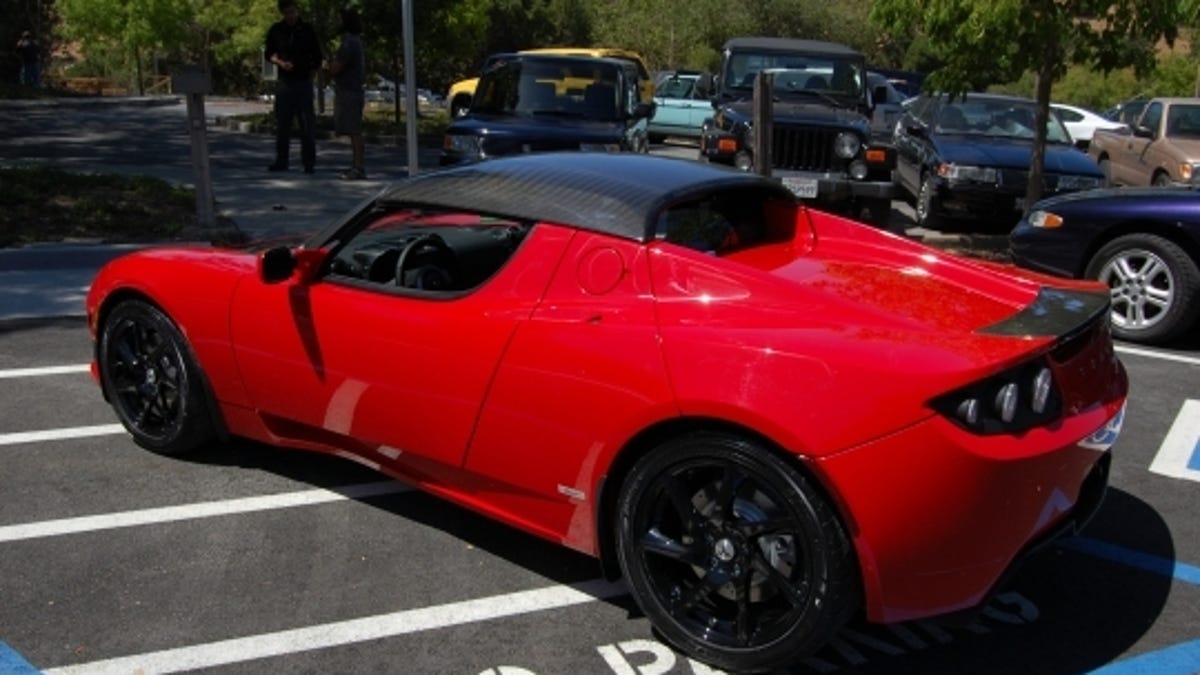California's zero-emission credits give start-up EV makers a boost
Automotive News reports on how EV makers are taking advantage of California's tax credits.

It's not just the weather that attracts start-up manufacturers of alternative-fuel vehicles to California.
The state's Zero Emission Vehicle program has created a marketplace for credits earned by selling electric and other low-emission vehicles. That means a potential source of income for small electric-vehicle makers that earn the credits but don't need them.
Indeed, part of the business plan of some small companies trying to break into the electric-car business involves selling credits to larger manufacturers. So far the only known transaction has been American Honda Motor Co.'s acquisition of credits from electric-vehicle maker Tesla Motors.
Tesla reported recently that it earned $12.2 million through March from the sale of credits earned through the sale of its $109,000 electric two-seat Roadster. The figure was included in a Securities and Exchange Commission filing for the company's planned initial public offering. The first Roadster was delivered in 2008, and Tesla has sold more than 1,000 units worldwide.
The California Air Resources Board requires manufacturers that sell more than 10,000 units in the state to accumulate ZEV credits. Individual targets are based on each carmaker's volume and market share in the state. Companies that don't comply face fines and potential restrictions on sales in California.
Credits earned through each sale are based on how far the vehicle can travel on a zero-emission fuel source. A vehicle with a range of more than 300 miles earns seven credits. One that travels more than 200 miles on a charge gets five. The Tesla Roadster brings four credits per sale
What's it worth?
CARB does not publish the value of a single credit, but automakers and investors put it at around $5,000.
"We've been trying to tell the air resources board to make it more transparent, so automakers know how much these credits are worth," says Simon Mui, a scientist with the National Resources Defense Council in San Francisco. "That way investors and automakers know how much a vehicle is worth to produce."
Honda, which has bought Tesla credits equal to 368 cars and contracted for 287 more, was the only customer named in the SEC filing.
"Buying the credits provides some flexibility," said Robert Bienenfeld, American Honda's senior manager for environmental and energy strategy.
Honda announced last month that it will launch plug-in hybrid and battery electric vehicles in the United States in 2012. But company executives have said previously that they are not convinced of prospects for mass production of alternative-fuel vehicles.
"There are a lot of uncertainties with respect to technology and infrastructure" for those type vehicles, Bienenfeld said.
California revised the ZEV objectives in 2008 to encourage the sale of plug-in models. Under the revised program, American Honda, Toyota Motor Sales USA, General Motors Co., Ford Motor Co., Chrysler Group, and Nissan North America are required to make available 7,500 zero-emission vehicles, such as battery electric and hydrogen fuel cell vehicles, by 2012. Together, they also must make available 60,000 extremely low-emission vehicles such as the plug-in Toyota Prius.
An investor in electric-vehicle maker Coda Automotive said privately that income from the sale of credits was a consideration in his decision to put money in the company. Coda, in Santa Monica, Calif., plans to sell a plug-in electric vehicle assembled from a body and batteries produced in China. Company officials declined to comment.
Sale of credits is part of the business plan for Aptera, an electric-vehicle start-up in Oceanside, Calif., says Marques McCammon, the chief marketing officer. Aptera doesn't count on income from the sale of the credits as its primary source of funding, but "we would be foolish not to consider it," McCammon says
Value may fall
The value of the credits is expected to fall as the supply of electric vehicles increases. In the next few years, several companies plan to offer all-electric vehicles in the United States, including Nissan, Mitsubishi, Mini, Smart, and Toyota in partnership with Tesla.
"Supply of these credits may exceed actual demand," Mui says. "Some manufacturers will have a lot of credits, so the credits will be at a significantly lower value.
The National Resources Defense Council figures that at least 40,000 electric-drive vehicles will be sold annually in California by the 2015 model year.
Dave Hurst, a senior analyst with Pike Research in Boulder, Colo., says earning credits likely is not a major factor in the electric-vehicle plans of large manufacturers such as Nissan, which is preparing to launch the Leaf.
"Start-up manufacturers is where it plays a bigger role," he says.
Meanwhile, California's ZEV program is due for another revision. The new regulations will be issued for comment by year end. Automakers are waiting to see what will be required of them as far as zero-emission vehicles are concerned.
"It's a puzzle," Bienenfeld says, "and most of the pieces are missing.
(Source: Automotive News)